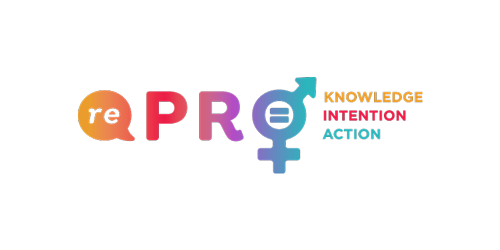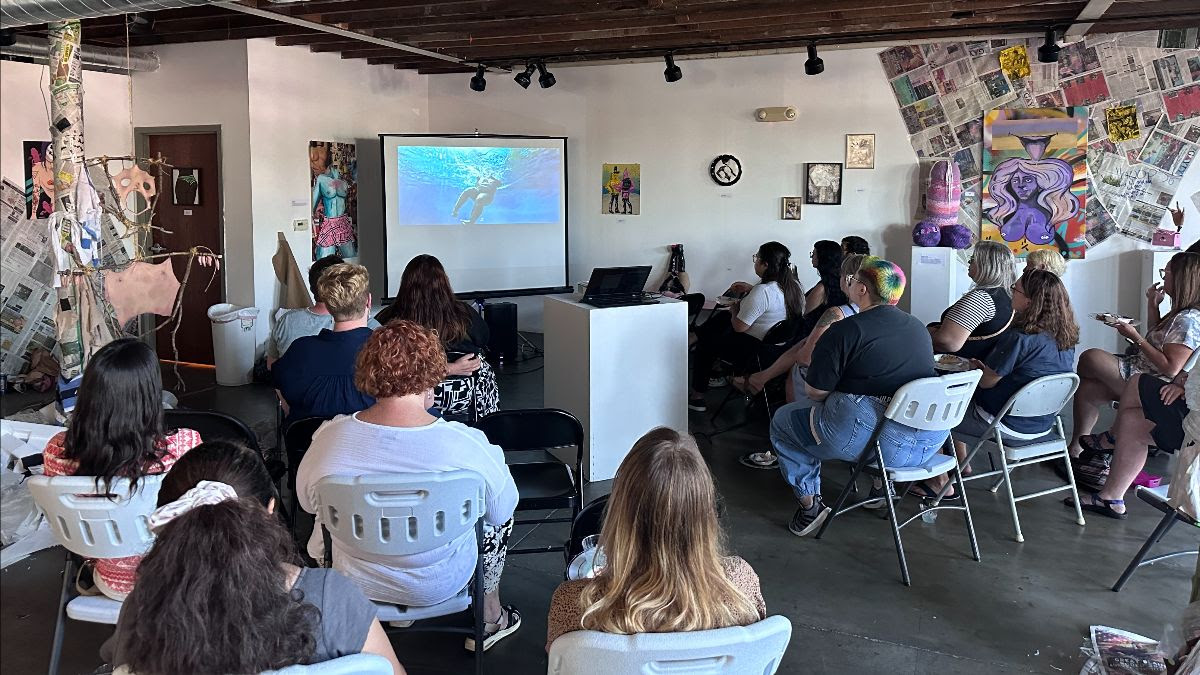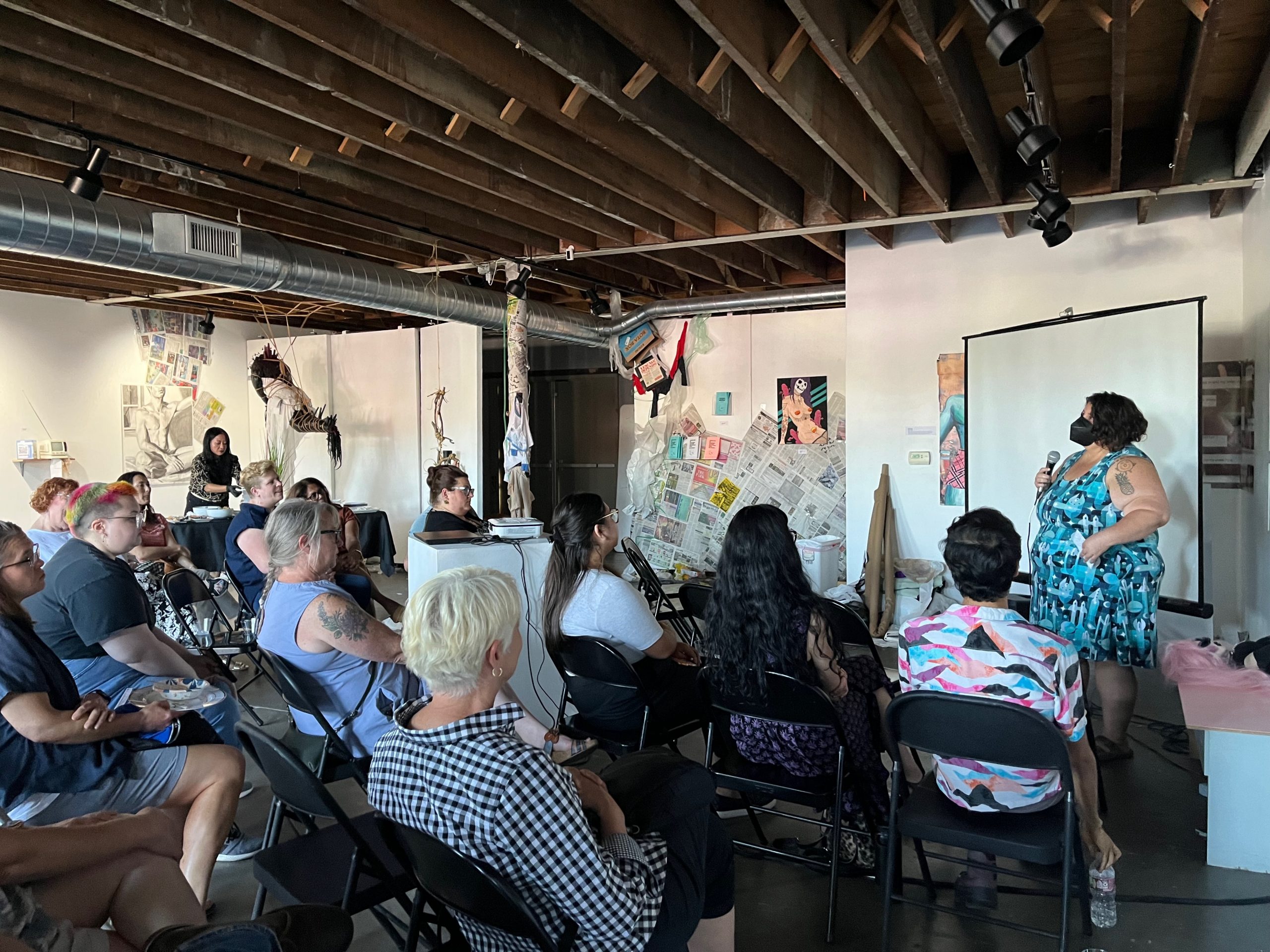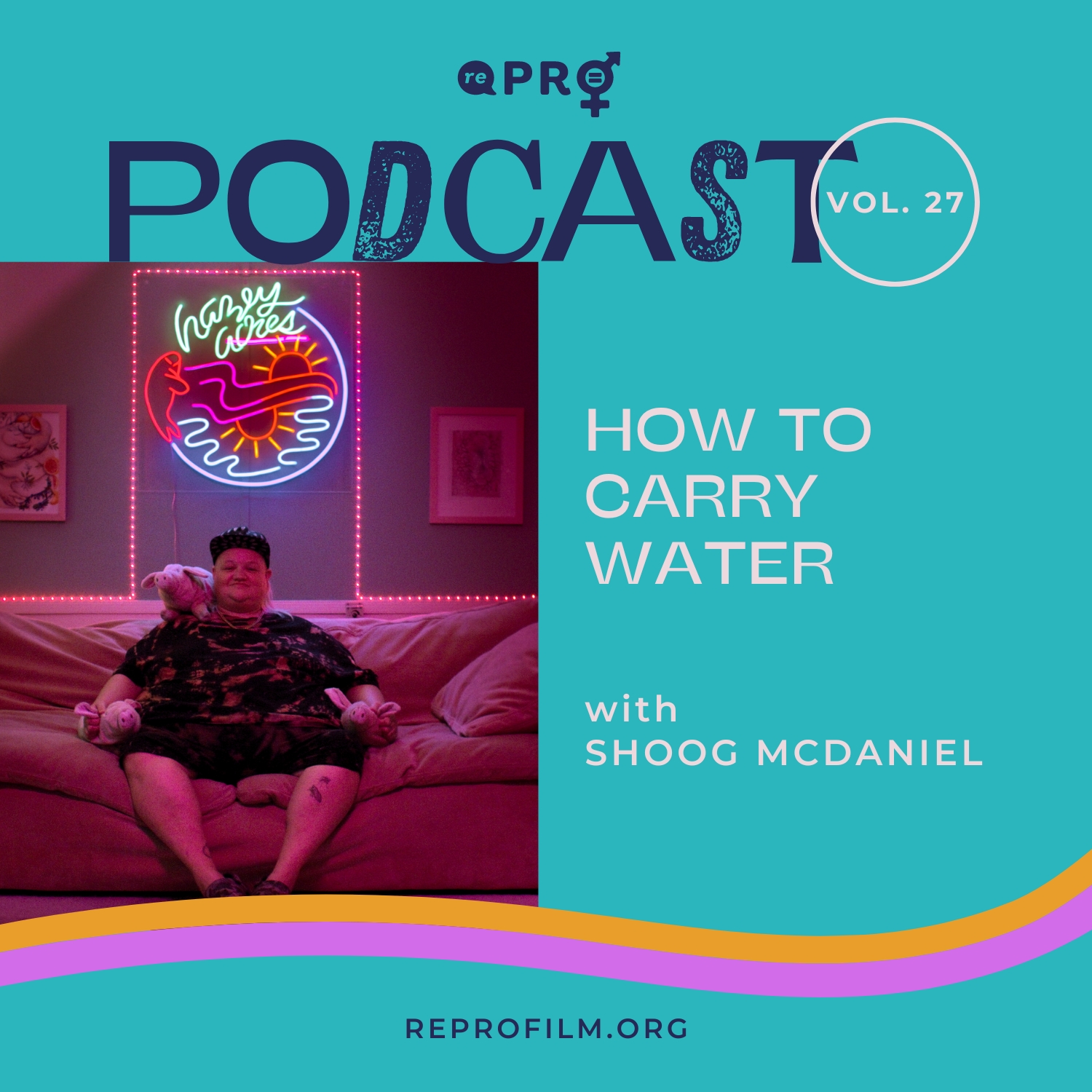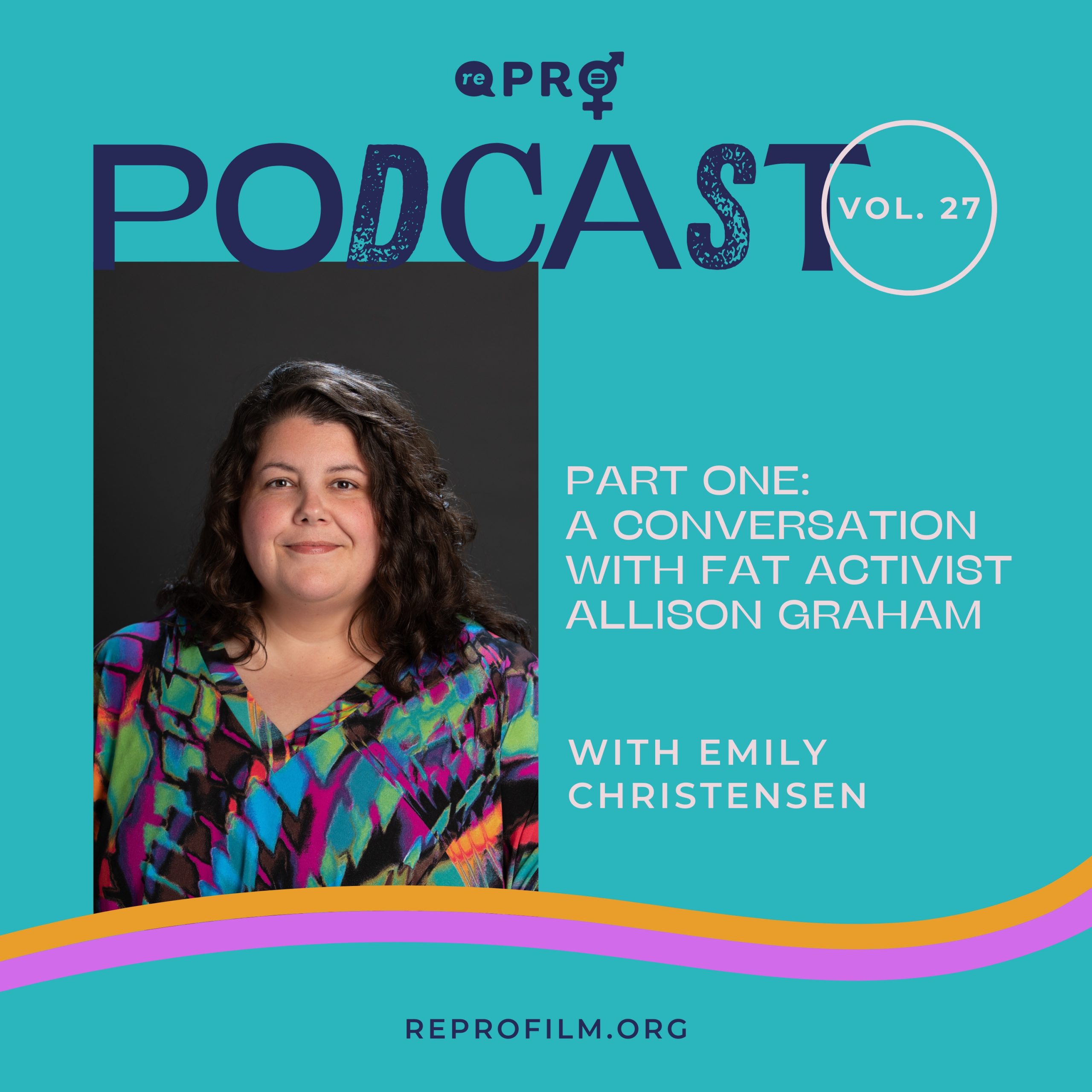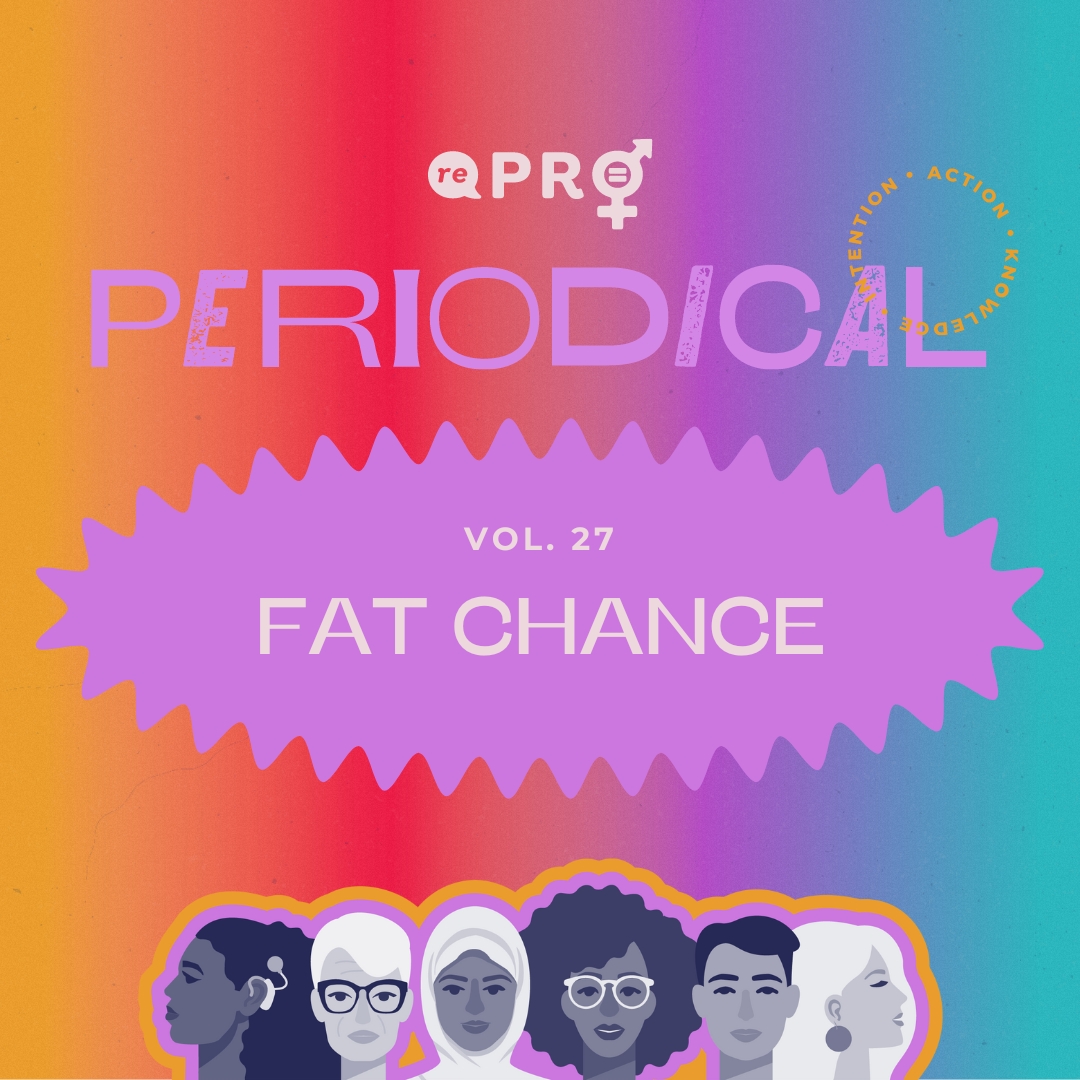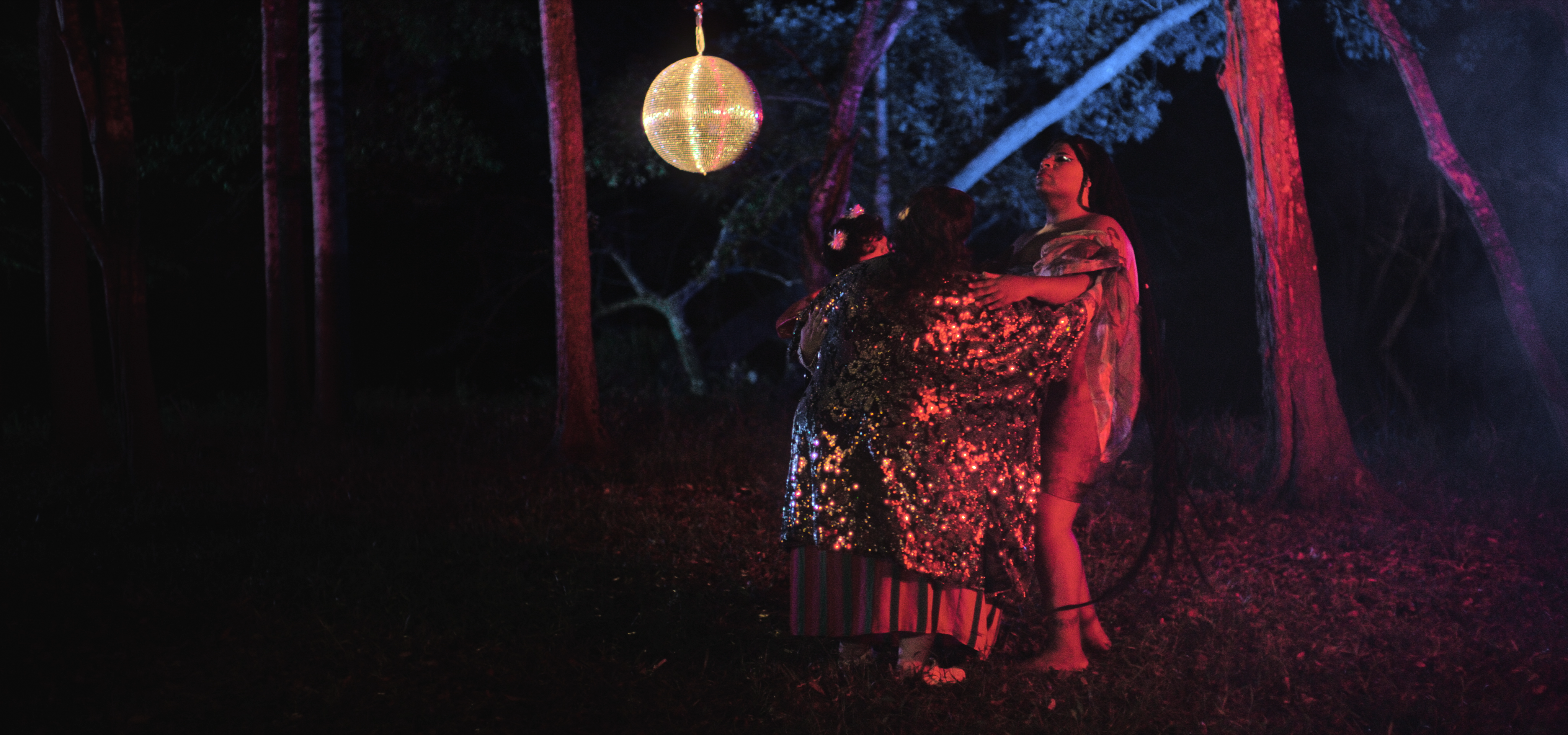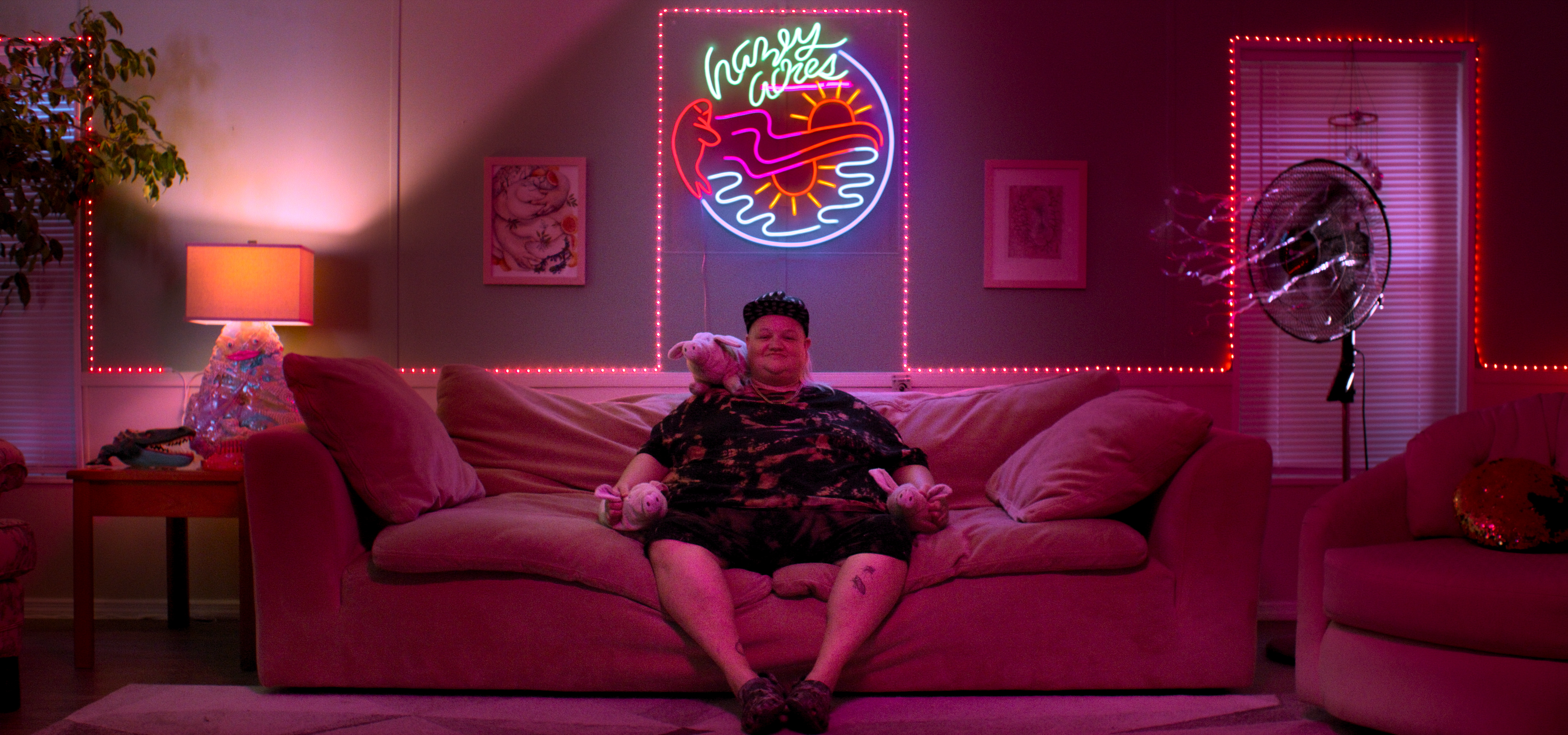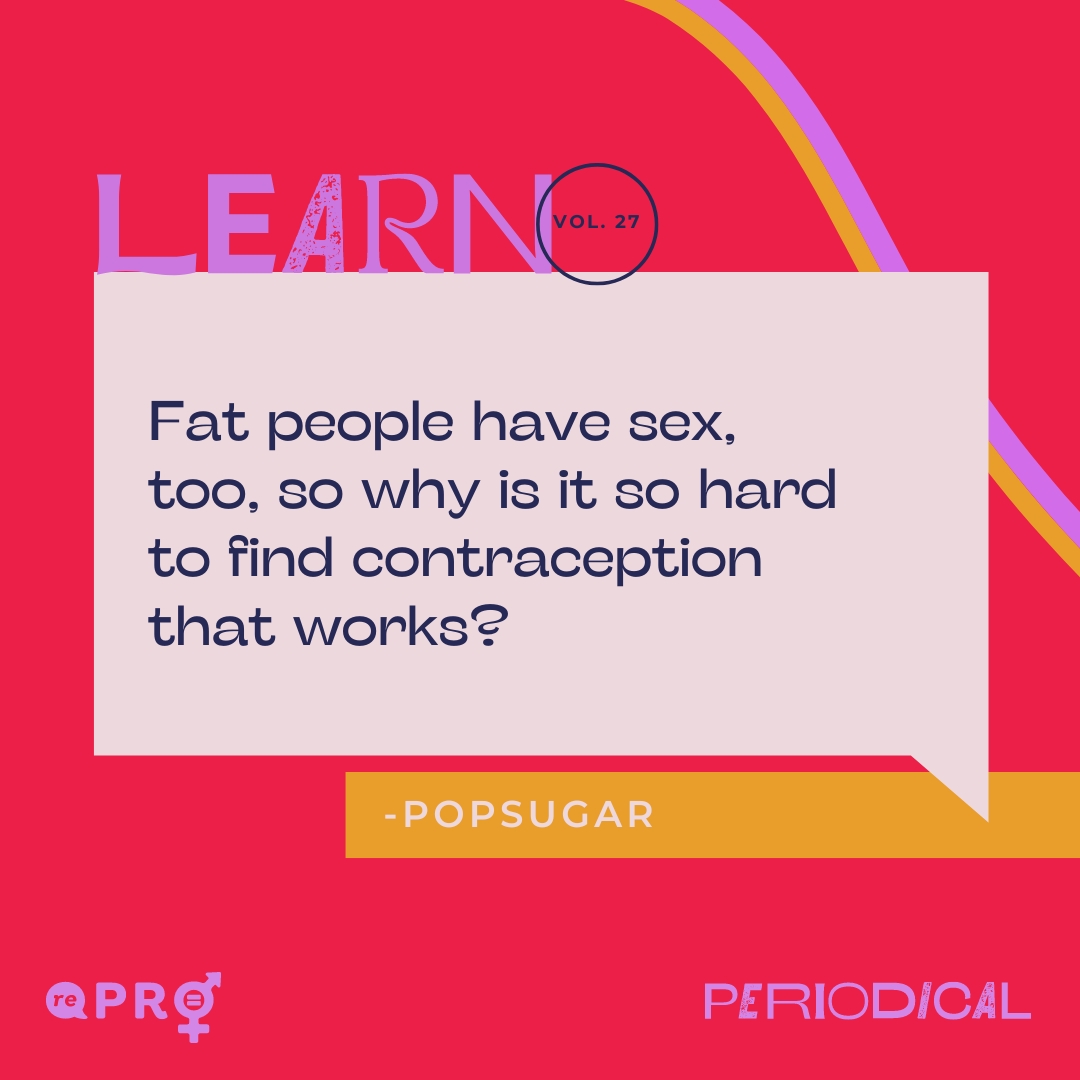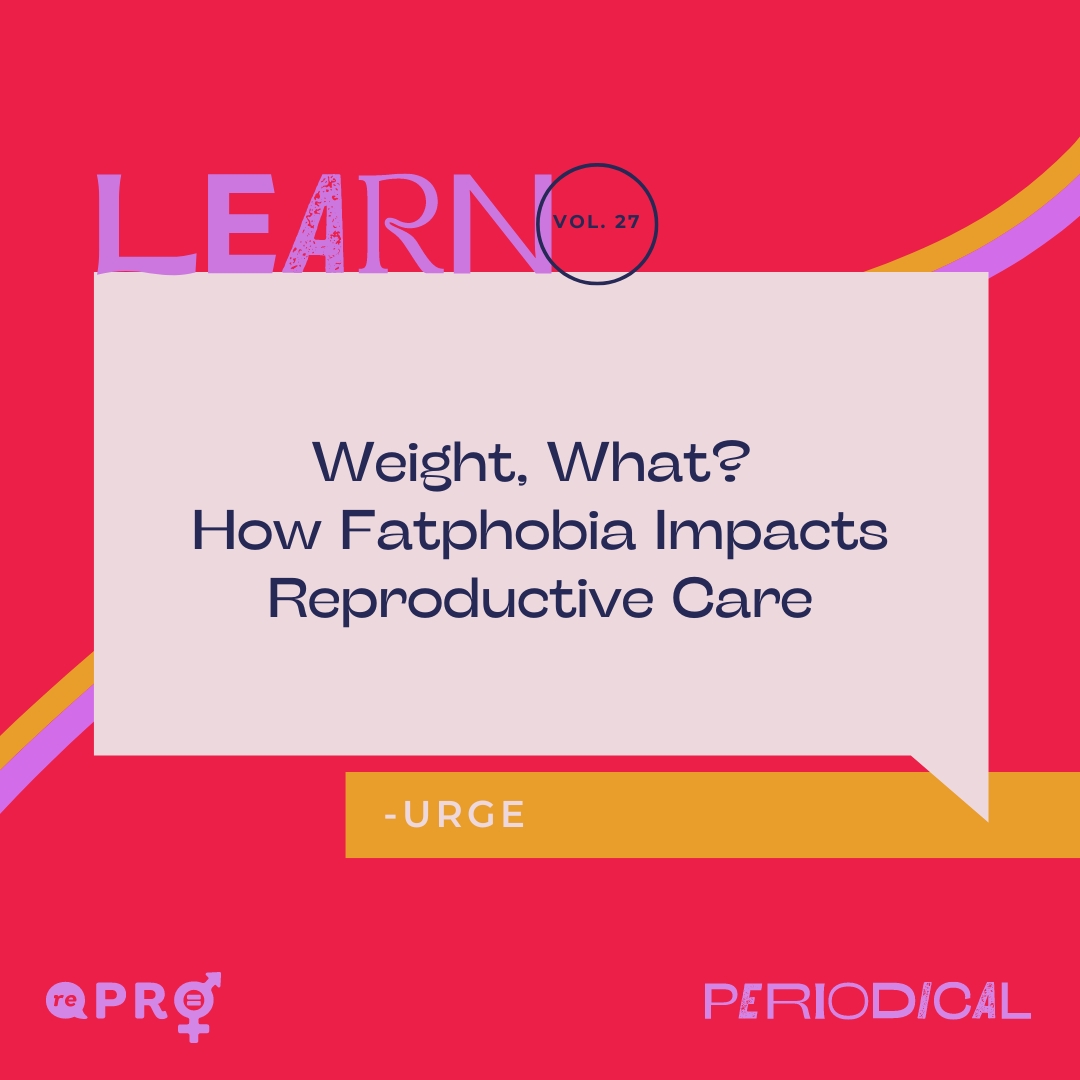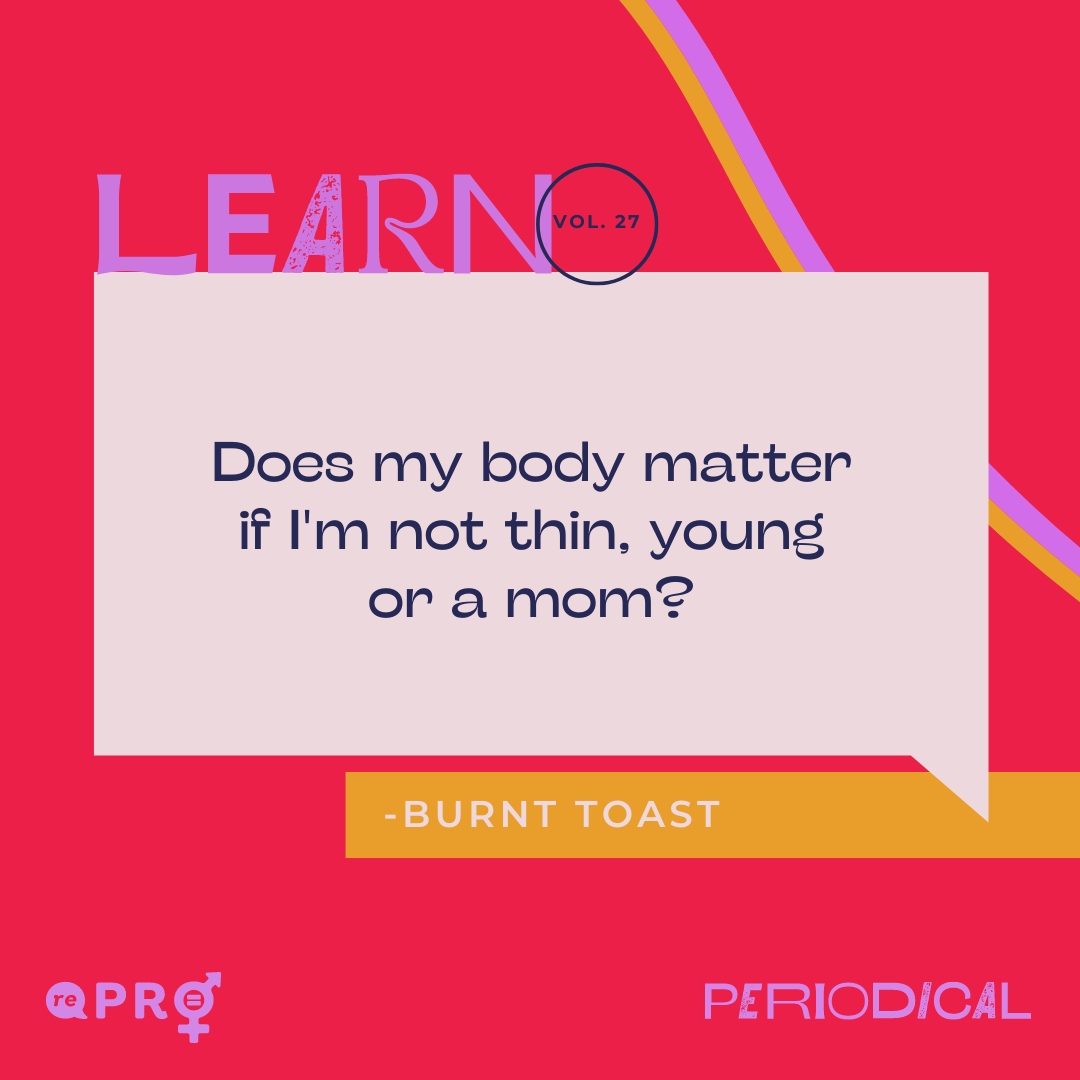Our community includes creatives & artists who are amplifying bodily autonomy through their work, audiences who applaud these stories and collaborative organizational partners with shared goals.

rePROFilm connects storytellers and advocates who celebrate bodily autonomy.
VOL. 27, CHAMPION:
EQUITY FOR EVERY(BODY)
We’ve heard from a handful of members of the rePROFilm audience that our Vol. 27 short film “How to Carry Water” and the conversations it inspired have moved them to examine some of their own biases.
Confronting anti-fat bias and exploring body liberation are both challenging tasks, but we’re not surprised that this understated-yet-bold film had that effect.
In our last Vol. 27 email, we’re championing an organization that’s advancing an aspect of reproductive justice connected to our film’s theme. For more than 20 years, the organization we’re endorsing has been advocating for health equity for people living in larger bodies. It’s radical and important work, and ASDAH is at the forefront.
XO,
the rePROFilm Team
VOL. 27, LISTEN:
A BIG DEAL
Allison Graham, our guest on the Periodical Podcast, hosted a fat clothing swap last weekend, the second she organized this year. It was a joyful day, during which many people passed on beautiful items of clothing and scored new treasures, all while giving and receiving plenty of compliments.
It was a timely reminder of the power of getting together. If you’re in Wichita, get together with us on August 6 for our next The Screening Womb event, a short program of snacks, sips, and discussion around the short film “How to Carry Water.”
If you can’t join us in person, you’ll have the film in your inbox the following day. It’s a lovely exploration about the beauty and worthiness of all bodies, and we’re using it as a jumping-off point to explore how fatness intersects with reproductive justice and bodily autonomy.
In the meantime, tune into our Vol. 27 playlist, which celebrates our bodies just the way they are. 
XO,
the rePROFilm Team
VOL. 27, LEARN:
FAT CHANCE
In Vol. 27, we’re exploring the intersection of reproductive justice and fatness.
It’s a tricky topic for many reasons. For starters, there’s the “F word.” Long used as a pejorative, many people in larger bodies prefer it to medicalized terms like “obese” or euphemisms like “curvy” or “fluffy.”
Of course, we have all been subject to damaging cultural messages about fatness, which combine to make it more difficult for fat people to access quality medical care, including reproductive care. Two important ways: Many higher-weight people are denied access to infertility treatment, and emergency contraception is far less effective for people living in fat bodies.
Next month we’ll share our Vol. 27 short film selection “How to Carry Water,” a documentary that centers fat bodies, gently challenging its viewers to reconsider how they feel about fatness.
To set the mood, we’ve assembled a few resources for you to explore, from photos and videos to essays and articles. Dive in — the water’s warm.
XO,
the rePROFilm Team

“How to Carry Water”
Directed by Sasha Wortzel (15 minutes)
Photographer Shoog McDaniel photographs fat people, often as they swim and float in a spring near their property. In her short documentary “How to Carry Water,” director Sasha Wortzel celebrates McDaniel’s practice, which centers community and process. Together, Shoog and her friends, subjects and fellow artists create work that challenges what we think we know about bodies.
Yet “How to Carry Water” is more visual feast than didactic sermon. We learn how Shoog and three of her subjects think of themselves, their bodies, and the work they create, but Wortzel leaves viewers space to grapple with their own biases. — Emily Christensen
Best of all, this film embraces its constraints, doing the absolute most with its cast, locations and 12-minute runtime. Moon doesn’t need a moment more to tell this laser-focused story, at once light-hearted and heartbreaking. — Emily Christensen
Discussion Questions, Developed by Allison Graham, the founder of Fat Friends ICT
- What was it like to see marginalized bodies, that you don’t typically see in mainstream media, as subjects in a film?
- In our world, social norms dictate how we act and interact with others. One of these social norms is diet culture – briefly defined as a system of social beliefs and expectations that values thinness and ability above all. How does this film challenge diet culture?
- One of the main subjects, Shoog, says “I live out here alone, but I’m never lonely.” Shoog has created an open and creative community through friendship and other artists. What might a community with fat and marginalized bodies look like or need?
- We talked about the themes of the film; marginalized fat bodies, diet culture and community. What makes this an important film to include in the rePROfilm series?
- What ties does fatness and fat liberation have to reproductive justice and freedom?
Periodical Podcast Vol. 27, Part Two with Shoog McDaniel
Fat activist Allison Graham talks to photographer Shoog McDaniel about what it was like to be on the other side of the lens for the documentary about their life and art practice.
“My work is about highlighting bodies and lives that are often overlooked by popular society. I enjoy photographing fat bodies, trans bodies, and queer bodies. People with gap-toothed smiles and missing buttons … I strive to connect the viewer of each photo to beauty within themselves, through understanding the brilliancy of diversity, by showing them that there are many ways to be beautiful.” — Shoog McDaniel, from a statement on their website.
| transcript |
“I want people to see the movie and not be able to see a difference between the beautiful spring water and the beautiful Belly. I want it to be one and the same.” — Shoog McDaniel on the Periodical Podcast
Periodical Podcast Vol. 27, Part One With Special Guest Allison Graham
Advocate and community-builder Allison Graham joins guest host Emily Christensen for a conversation about why she likes the word fat, body positivity vs. fat liberation, and how anti-fat bias shows up in the work she does as a therapist and advocate for survivors of sexual violence.
More recently, Allison has been working to build fat community in Wichita, Kansas, and she discusses her motivation and goals around that work.
| transcript |
Stay tuned for Part 2 of the Periodical Podcast, in which Allison interviews photographer and “How to Carry Water” documentary subject Shoog McDaniel.
“Some of my hopes are to build a community where people feel seen and heard just as they are, in the bodies that they have, and don’t feel pressure to lose weight or to dislike themselves or put themselves down. It’s a very compassionate thing to do to see yourself as you are and not hate yourself.”
— Allison Graham on building fat community in her hometown

Full-Bodied Self-Love
Let’s embrace every bit of our beautiful selves. No shame. No pain. Just the amazing love only we can give.
In the words of Kacey Musgraves, “In a world of squares, maybe you’re just round.”
You might not be everybody’s “Cup of Tea,” but you deserve bodily autonomy, access to public spaces, and respect no matter how you show up in the world.

Fat people have sex, too, so why is it so hard to find contraception that works?
“Despite all the important discussions happening in the SCOTUS decision’s wake, there’s one conversation that’s gone vastly unreported: how the overturn of Roe v. Wade is disproportionally impacting people in larger bodies.” This story is a deep dive into the challenges fat people face in accessing contraception.
Weight, What? How Fatphobia Impacts Reproductive Care
This primer from a reproductive justice organization is a terrific overview of how fatphobia impacts medical care, including reproductive care.
(Urge)
Adipositivity (NSFW)
“How to Carry Water” follows a fat photographer who specializes in capturing fat bodies. Her forerunner: Substantia Jones, who has been focusing her lens on fat people (clothed and unclothed) for more than two decades. (Adipositivity)
Inclusive language for higher-weight people
This primer may be useful if you’ve ever grasped for the right words to describe someone else’s body (or your own). Stick around for Ragan Chastain’s takedowns of the diet industry and a health-care system that often works against the interests of fat people. (The Weight and Health Care Newsletter)
The body is not an apology
This spoken-word performance by artist and activist Sonya Renee Taylor is a fierce statement about the value of her body — and every body (including yours). If Taylor’s work resonates, you might check out her book “The Body Is Not an Apology: The Power of Radical Self-Love.” (YouTube)
Does my body matter if I’m not thin, young or a mom?
This post is for paid subscribers of Burnt Toast, the newsletter by anti-diet, body liberation journalist Virginia Sole-Smith. We share it here because you can still read the first few paragraphs without paying, plus this essay criscrosses its way through the intersections of fatness and reproductive justice. A choice excerpt: “Your body is inherently good and valuable, no matter what it weighs and no matter whether it has made a child. There is no contingency on that value. We cannot decide that some bodies get to matter and some bodies don’t.”
Some of our favorite fat TikTok creators
Some of the best TikTok accounts belong to fat athletes, like ice skater @bigbodyonice, Pilates practitioner Fat Body Pilates, roller skater @fat_quads, marathoner Latoya Shauntay Snell, and dancer Imani Lias. Fitness doesn’t make a body more valuable than it would be otherwise, but it’s powerful to watch fat people move through the world in unexpected ways. (TikTok)
FURTHER READING
If the links above surprised you or stoked your curiosity and you want to learn more about fatness, bodily autonomy, and body liberation, here are a few more resources:
- Books by Aubrey Gordon and the Maintenance Phase podcast. Gordon, who rose to internet fame as Your Fat Friend, writers incisively about fatness in “What We Don’t Talk About When We Talk About Fat” and “‘You Just Need to Lose Weight’ and 19 Other Myths About Fat People.” If podcasts are more your speed, subscribe to Maintenance Phase, the podcast she co-hosts with journalist Michael Hobbes.
- “Reclaiming Body Trust: A Path to Healing and Liberation.” In their first book, therapist Hilary Kinavey and dietician Dana Sturtevant invite you to “reject a culture that has profited from trauma, stigma, and disembodiment, and fully reclaim and embrace your body.”

ASDAH (Association for Size Diversity and Health)
ASDAH’s purpose is to create the conditions for people of all sizes, particularly those most impacted by systemic anti-fat bias, to have equitable and barrier-free access to the care and health care resources we need to support our well-being.
The organization offers education about and advocacy for Health at Every Size, a weight-neutral approach to patient care rooted in liberatory practices. HAES recognizes that all people are entitled to quality health care, and anti-fat bias has negative health consequences for patients in higher-weight bodies — many of whom will give birth, end pregnancies, go through menopause, experience sexual trauma, and have other health-related experiences that intersect with reproductive justice.
Also important to note: ASDAH maintains a directory of providers that adhere to HAES principles, so you can see who’s practicing in your area or who you can connect with via telehealth.
Learn more about ASDAH and HAES.


rePROFilm endeavors to make our programming a safe, accessible and welcome place for anyone who wants to participate. We acknowledge that we have much to learn about creating this space, and welcome and and all feedback that can make us better aware and able to support all minds and bodies.
We are committed to screening films in accessible venues, and also understand that meeting ADA standards for accessibility does not actually mean a venue is actually accommodating for everyone. As best we can, we will offer a complimentary companion ticket to our film screenings as requested. For our virtual screenings, we ask all filmmaking teams to provide closed captioning, audio descriptions or open captions whenever possible. For any questions, please contact us at 323-810-6909 or help@reprofilm.org. We are here to do our best to make our programming as inclusive as possible.
